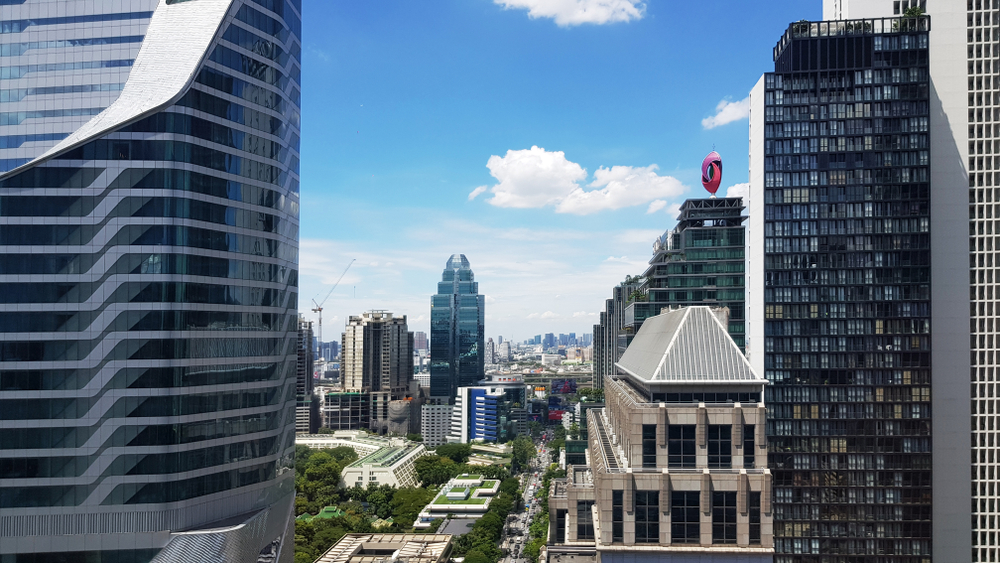Bangkok’s residential market to improve next year due to positive buyer sentiment
The city continues to be an attractive option for foreigners, particularly Chinese, due to the lower living costs

According to Bangkok Post, Bangkok’s residential market looks positive next year as supply and demand balance and foreign interest in Thai property, particularly Chinese, remains strong.
Suphin Mechuchep, chairperson of property consultant JLL Thailand and jury chair of the PropertyGuru Asia Property Awards, said remote working flexibility would increase foreigners’ demand for Bangkok’s residential market.
“Those working at the office for three days and at home for two days may create new requirements,” she said. “Growing demand will also derive from the gig economy with gig workers from other countries and digital nomads around the world.”
Bangkok continues to be an attractive option for foreign investors due to its lower cost of living.
However, demand from foreigners will be higher once the borders are fully opened.
“We should prepare the public health system and pandemic controls like last year, while at least 80 percent of people in Bangkok and major destinations should be vaccinated in order to build foreign buyers’ confidence in a short period,” Mechuchep suggested.
To boost property sales, aiming for the right target markets is crucial. Over the past few years, Thailand’s major foreign investors have been Chinese and Singaporeans.
Kamolpat Swaengkit, country manager of property portal website DDproperty.com, said Chinese buyers were interested in Thai property because the annual yield was over five percent, which was higher than those in their home countries.
“Many Chinese are looking for a second home for their retirement. Some send their children to study in Thailand while expanding their family business in the country. Some want to relocate to do business in Southeast Asia,” she said.
Price ranges that attract Chinese buyers are those lower than THB5 million a unit (USD149,682) which accounted for 54 percent, followed by THB5-10 million (16 percent).
Rathawat Kuvijitrsuwan, head of research and consulting at property consultant CBRE Thailand, said Asia-Pacific investors had more intentions to buy properties in 2021, compared with 2020.
“Preferred regions for cross-border investment include developed Asian countries like Singapore, China and Japan, followed by emerging countries like those in Southeast Asia,” he said.
Industrial, logistics, warehouses, and data centres are the most preferred sectors for investment, followed by office, residential, hotel, and retail.
Vichai Viratkapan, acting director-general of the Real Estate Information Center (REIC), said the housing market should recover next year with local demand as the main driver.
More: Bangkok ranks as the best city to combine holiday and work
“A drop in newly launched supply this year will result in a market balance,” he said. “With the decrease in new supply, stock will eventually be absorbed and a positive sign of new supply will start next year.”
REIC predicts that at least 80,000 units of new residential supply will be launched in Greater Bangkok next year, an increase from the 53,693 units expected this year.
The Property Report editors wrote this article. For more information, email: [email protected].
Recommended
Why everyone is moving to Selangor and Johor: Malaysia’s real estate comeback
Malaysia’s upturn in fortunes is especially prevalent in secondary destinations such as Selangor and Johor
Penang’s silicon boom: How the US-China tech war is supercharging local real estate
Penang’s booming semiconductor industry has created ripples within the local real estate sector
New leader, new opportunities: How Hun Manet is shaking up Cambodia’s real estate game
Hun Manet is overseeing decent economic growth and widening access to the country’s real estate market for foreigners
Singapore embraces inclusive housing reforms amid resilient demand
The Lion City’s regulatory strength continues to exert appeal for international investors








